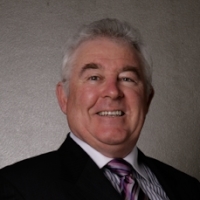
 There seems to be a great race to get funds under management (FUM), with estate planning and sensible advice overlooked or forgotten, to the detriment of advisers and their clients.
There seems to be a great race to get funds under management (FUM), with estate planning and sensible advice overlooked or forgotten, to the detriment of advisers and their clients.
Would more advisers get involved with estate planning if they realised that this is an opportunity to understand a problem and provide advice solutions for a fee?
Most advisers – I estimate 85 per cent – will gloss over estate planning in a fact finder [process] and fail to address the issue in an Statement of Advice (SOA). I suspect that is because they don’t understand the process and they do not understand their role in considering and providing advice to a client, and understand the role of the lawyer. Most advisers simply believe that estate planning is something to be flicked on to a lawyer.
Those advisers are simply missing the whole point of being a trusted adviser and adding significant value, especially when considering Reasonable Basis Requirements.
Like most aspects of financial advice, estate planning needs to be process-driven to produce an outcome that can populate a compliant SOA.
Recently, I reviewed an SOA of a client who is a recently divorced mother of two. She was asked by the adviser if she had a current will, to which she answered in the affirmative. The adviser didn’t ask the next important question, ”Have you reviewed this will since your divorce?” She hadn’t.
The adviser in the SOA suggested the use of a testamentary trust, without reference to why, or the context in which it should be used.
Most advisers, when pushed on the subject, believe estate planning is limited to the disposal of assets on the death of the client – it’s not.
Document with a client their concerns on estate equalisation, succession planning, SMSF ownership and trustee transfer consideration and even their health, if they have diminished capacity.
The Pandora’s Box of estate equalisation opens up so many financial planning opportunities, especially in, for example, a family farm, but without a suitable fact finder process, most advisers and their clients will miss out in addressing the problems with suitable solutions.
Succession planning has been documented as the number one biggest concern for SME clients, but without a full and complete understanding of the business structure, ownership, and business value, the adviser is blind to the advice opportunities; most discovery tools that I have seen do not even come close to assisting the adviser to help his client.
Perhaps the client in their retirement wishes to travel extensively, but has not considered powers of attorney, the limitations and the suitability of the person to act on their behalf.
Those advisers that do take the time to make sure they have the right tools and processes to address the opportunities in estate planning will enjoy building a very successful advice business.
 Brian Boggs is the principal of Adviser Asset Solutions, co-founder of Leading Minds Academy and principal of Information, Learning And Implementation, providing consulting services to financial product manufacturers, licensees and financial advisers.
Brian Boggs is the principal of Adviser Asset Solutions, co-founder of Leading Minds Academy and principal of Information, Learning And Implementation, providing consulting services to financial product manufacturers, licensees and financial advisers.
He is a stalwart of the financial planning industry with over 32 years’ experience. Under his leadership, Wise Financial Services Pty Ltd became a national award-winning financial services company, managing client’s accounts worth millions of dollars.
Specialising in helping advisers grow their business, Boggs is a sought-after public speaker, regularly appearing at industry conferences and PD days.
Never miss the stories that impact the industry.